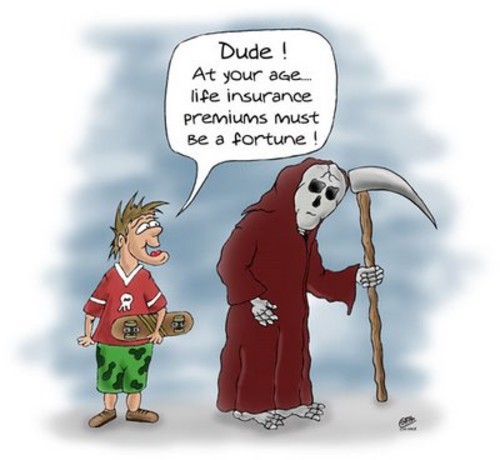Life insurance policies aren’t a one and done product. Policyholders can select from several different types of life insurance. One of the most popular types is called cash value life insurance. But wait – the decision-making doesn’t stop there.
 Learn about the different types of cash value life insurance policies, their features and how to decide if this is the right type of life insurance for you and your family.
Learn about the different types of cash value life insurance policies, their features and how to decide if this is the right type of life insurance for you and your family.
How Cash Value Life Insurance Differs From Term Life Insurance
Cash value life insurance policies are a little more complex than term life insurance. Unlike term life insurance, cash value isn’t for a set period of time and there are two different types of policies to choose from. While it may be a little harder to wrap your head around, cash value life insurance has benefits over term life.
Lower Premium Over the Life of the Policy
The premiums at the start of the policy will be higher, however because the premiums rise at a slower rate they may be lower than a term life policy in the long run. This is especially true if you buy at a younger age.
Cash Value Savings Component
The biggest difference is that with a cash value policy a portion of each premium is put into an account that you can use to invest with, borrow against or withdraw. The money in this account is the cash value of the policy. It can grow if it’s tied to a fixed interest rate, indexed interest rates or stocks, bonds or securities.
Careful though – if you withdraw the entire amount of the cash value the policy will be canceled.
Benefits
Oftentimes the benefits of cash value life insurance is better than term life, which is part of the reason why it costs more up front. Beneficiaries can potentially receive both the policy’s death benefit and the cash value of the policy.
Whole Life Cash Value Life Insurance
When you choose whole life cash value life insurance it covers you for your entire life without having to renew, given a few exceptions. If you cash out the entire value or fail to pay premiums the policy will be ended. Typically the premium won’t increase but if it does it’s usually nominal.
If the cash value investment account preforms well you may receive dividends if you have a participating policy. The dividends can be put into the cash value of the policy, used to pay future premiums or given as cash.
Flexible Premium Universal Life Cash Value Life Insurance
Flexible premium universal life cash value life insurance is a little more complicated than whole life. As the name suggests this policy has a flexible period of coverage, benefits and premium that can be changed at any time. You can set the length of the policy and as long as the cash value isn’t completely drained and premiums are paid the policy will remain in effect until it reaches maturity. At that point you’ll receive the cash value of the policy.
Flexible premium universal life can have either a guaranteed rate of return or it can be variable, which means the return depends on the performance of the investment connected to the policy.
Who Should Consider Cash Value Life Insurance
Anyone in the market for life insurance in Austin, TX should entertain the idea of a cash value policy and do their part to research offers in detail. Below we’ve highlighted who these types of life insurance policies may work best for.
· Those who are looking for long term policies that will last at least 15-20 years
· People who can afford a higher premium at the onset of the policy
· People who are interested in the savings and investment aspect of a cash value policy
Before establishing a policy discuss all aspects of the policy with the agent, ensure that they have a federal securities license in addition to a state insurance license if they are selling variable universal life insurance and refer to your short and long-term budgets to figure out if this is the best option for your financial situation.
Original Source: http://www.mybiginsurance.com/life-insurance-blog/cash-value-life-insurance-explained

